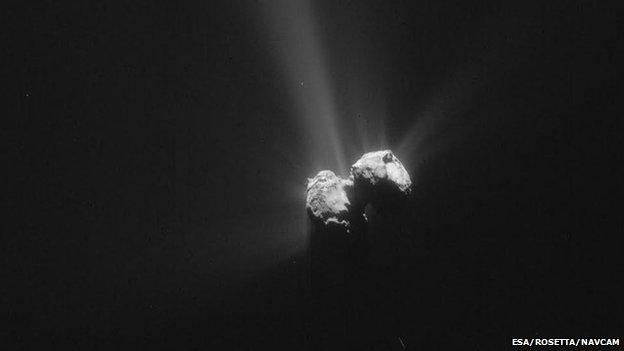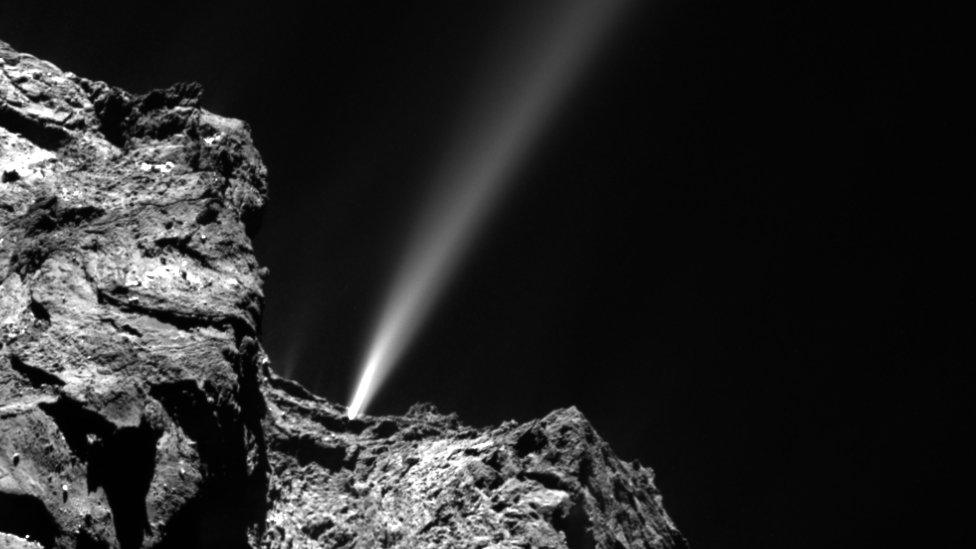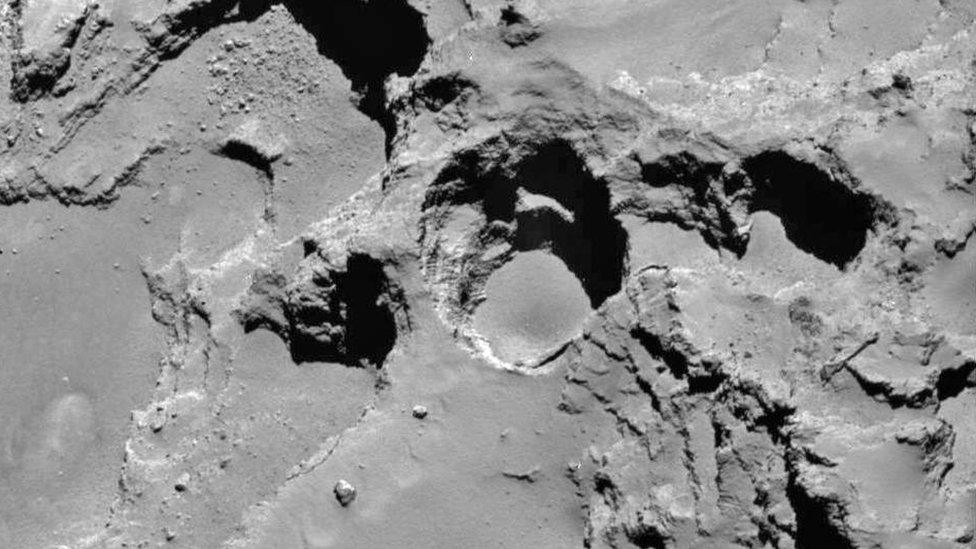Comet impacts cook up 'soup of life'
- Published

The Rosetta mission has already demonstrated that Comet 67P contains complex organic molecules
New results show how collisions between comets and planets can make molecules that are the essential building blocks of life.
This suggests that the chemistry needed to gather the molecular ingredients for life could be more common than previously recognised.
Earth scientists from Japan carried out experiments to mimic comet impacts that occurred on early Earth. They found chemical reactions to make the primordial "soup for life" can occur anywhere that comets collide.
Presenting their work at the Goldschmidt conference of geochemists in Prague, external, Dr Haruna Sugahara and Dr Koicha Mimura reported that after mixtures of ice, amino acids and rock were impacted with a projectile, the amino acids joined up to make complex organic molecules, peptides, which are important building blocks in biochemistry.
Reactions to make peptides could, therefore, occur widely on bodies across the Solar System, including places like comets, as well as around other stars across the Universe, it seems.
Prof Mark Burchell, from the University of Kent, UK, who was not involved in the work, commented to BBC News: "What this new work does is to show that if a comet containing such material were to hit a planet, the energy from the impact will drive further chemistry to help form short peptides, chains of amino acids that are useful to make proteins"
Scientists have already seen that amino acids and complex organic molecules exist on comets, from space missions like Stardust (a US space agency mission that returned cometary samples from comet 81P/Wild-2 in 2006) and the recent data from the European Space Agency's Rosetta mission.
Dr Sugahara said: "This finding indicates that comet impacts almost certainly played an important role in delivering the 'seeds of life' to the early Earth. It also opens the likelihood that we will have seen similar chemical evolution in other extraterrestrial bodies, starting with cometary derived peptides."
The idea that life, or the precursors to life, is present in outer space and was delivered to Earth on comets or meteorites to allow life to start here is not new. These results suggest that the impact of such comets themselves might also be key to building the ingredients for life, however.
"Space could have been the source for the Earth of some of the ingredients for life, but of course we are still talking pre-biotic chemistry. We still don't know how or where chemistry became life," Prof Burchell told BBC News.
- Published13 August 2015

- Published30 July 2015
- Published1 July 2015

- Published19 June 2015

- Published14 April 2015